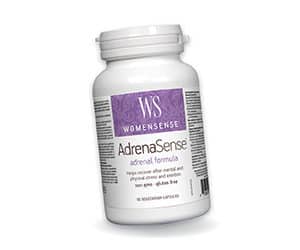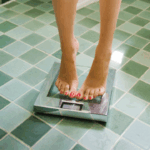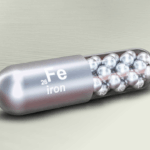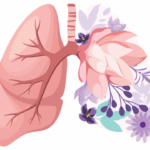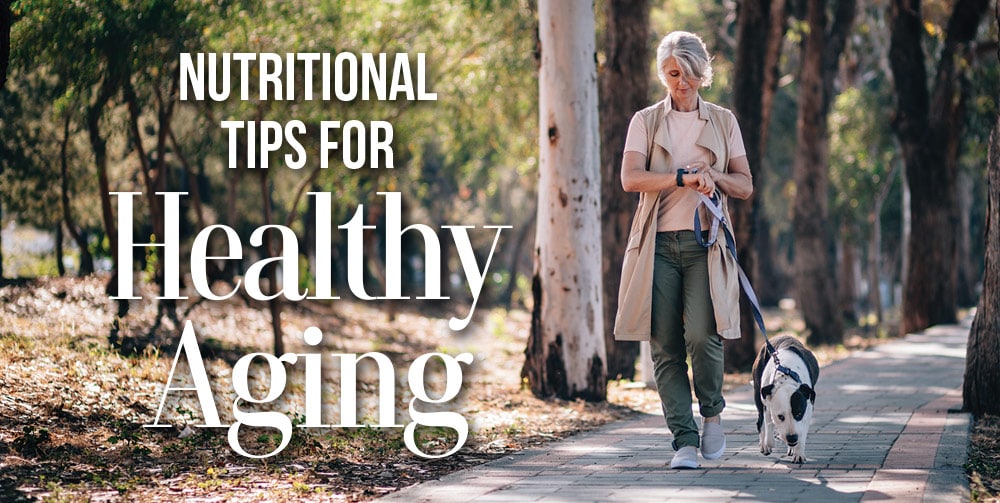
Normal aging affects all physiological systems. Changes in functions of most organs start to show by the third and fourth decades, with progressive deterioration. The rate of aging is the same for a 45-year-old as it is for an 85-year-old, but by the age of 85, more permanent age-related changes have already occurred. aging is a biological process that promotes a host of different degenerative changes, resulting in loss of cellular function and homeostasis. Preventive programs of diet and exercise, and nutritional supplements that support cellular function and metabolism can help delay or reverse some of the changes that occur with normal aging. It is never too late to make changes to help you stay healthy and active as the years unfold.
1. Prebiotics and Probiotics
Changes in physiology and lifestyle in older age typically lead to the consumption of a less- diverse diet. Often rich in sugars and fats, and low in fibre, this type of diet contributes to a lower intestinal microbiota diversity and slower intestinal transit.
The importance of fibre cannot be overemphasized for people of any age, but it becomes even more important with age. If increasing fibre is all you do to support the health of the gut microbiome, it is an important step. Choose fibres that are easily fermentable in order to avoid gut irritation. Fermentable fibres are called prebiotics. FibreSenseTM is an easily fermentable fibre.
Senior’s Multi Probiotic provides eight probiotic strains that support digestive health. Probiotics help relieve constipation, gas, and bloating, reduce production of pro-inflammatory substances, support genitourinary health, and also combat age-related decline in immune system function.
2. Natural Anti-Inflammatory Support
Chronic low-grade inflammation is another hallmark of aging that is most often “silent.” This inflammation is only characterized by an increase in inflammatory markers such as C-reactive protein and IL-6, which are consistently higher in aging individuals compared to younger people. Studies show that healthy centenarians exhibit low levels of these inflammatory biomarkers.
Although there may not be a single path to disease, mounting evidence suggests inflammation is a common underlying cause of most chronic diseases. Whole Body Optimizer is specifically formulated to prevent and help treat inflammation in the whole body. It contains important natural anti-inflammatory ingredients such as omega-3, curcumin, boswellia, and a proprietary blend of antioxidants and anti-inflammatory foods.
3. Magnesium with Vitamin D
Around the age of 70, magnesium absorption is only two-thirds what it is at age 30. People who reach 100 years of age have been found to have higher total body magnesium and lower calcium levels than most elderly people. Vitamin D deficiency risk increases with age. As people get older they lose some of their ability to synthesize vitamin D from sunlight. The adequate balance of magnesium and vitamin D is essential for maintaining the physiological functions of various organs and adequate magnesium intake is needed to activate vitamin D.
Dosage: Vitamin D at a minimum dose of 1000 IU daily; magnesium 200–400 mg daily.
4. Omega-3s
Omega-3 levels are associated with healthy aging in adults. Healthy aging is defined as living without diseases such as cancer, kidney and lung disease, or cardiovascular disease. Omega-3s are primarily found in seafood and benefits are seen in those who consume coldwater fish at least twice a week. Research shows that omega-3s have the potential for substantial benefits in cognition, cardiovascular health, immune function, muscle performance, and bone health in older adults. Omega-3s are available in liquid or soft gel fish oil products. Look for the ISURA® seal of approval, as many fish oils contain contaminants such as mercury. It is important to purchase products that guarantee quality.
5. Water and Exercise
I cannot emphasize enough the importance of water. By the age of 80, our bodies have 15% less water than when we were 20, making us more vulnerable to dehydration. Try to drink at least 1.5 L of filtered water daily.
The benefits of regular physical activity and exercise on general health as well as overall quality of life in older adults are well established and any little thing you do for activity helps – it doesn’t need to be intense. The new exercise guidelines state that benefits tend to accumulate as physical activity level increase, so adults who are able to get 300 or more minutes of exercise per week should do so. Nonetheless, research shows that even modest amounts of light physical activity, such as walking, cleaning, and running errands, can come with benefits including better mental health and longevity. Pick a time, pick a place, make a plan, and move more!

1. Prebiotics and Probiotics
Changes in physiology and lifestyle in older age typically lead to the consumption of a less- diverse diet. Often rich in sugars and fats, and low in fibre, this type of diet contributes to a lower intestinal microbiota diversity and slower intestinal transit.
The importance of fibre cannot be overemphasized for people of any age, but it becomes even more important with age. If increasing fibre is all you do to support the health of the gut microbiome, it is an important step. Choose fibres that are easily fermentable in order to avoid gut irritation. Fermentable fibres are called prebiotics. FibreSenseTM is an easily fermentable fibre.
Senior’s Multi Probiotic provides eight probiotic strains that support digestive health. Probiotics help relieve constipation, gas, and bloating, reduce production of pro-inflammatory substances, support genitourinary health, and also combat age-related decline in immune system function.

2. Natural Anti-Inflammatory Support
Chronic low-grade inflammation is another hallmark of ageing that is most often “silent.” This inflammation is only characterized by an increase in inflammatory markers such as C-reactive protein and IL-6, which are consistently higher in ageing individuals compared to younger people. Studies show that healthy centenarians exhibit low levels of these inflammatory biomarkers.
Although there may not be a single path to disease, mounting evidence suggests inflammation is a common underlying cause of most chronic diseases. Whole Body Optimizer is specifically formulated to prevent and help treat inflammation in the whole body. It contains important natural anti-inflammatory ingredients such as omega-3, curcumin, boswellia, and a proprietary blend of antioxidants and anti-inflammatory foods.

3. Magnesium with Vitamin D
Around the age of 70, magnesium absorption is only two-thirds what it is at age 30. People who reach 100 years of age have been found to have higher total body magnesium and lower calcium levels than most elderly people. Vitamin D deficiency risk increases with age. As people get older they lose some of their ability to synthesize vitamin D from sunlight. The adequate balance of magnesium and vitamin D is essential for maintaining the physiological functions of various organs and adequate magnesium intake is needed to activate vitamin D.
Dosage: Vitamin D at a minimum dose of 1000 IU daily; magnesium 200–400 mg daily.

4. Omega-3s
Omega-3 levels are associated with healthy aging in adults. Healthy aging is defined as living without diseases such as cancer, kidney and lung disease, or cardiovascular disease. Omega-3s are primarily found in seafood and benefits are seen in those who consume coldwater fish at least twice a week. Research shows that omega-3s have the potential for substantial benefits in cognition, cardiovascular health, immune function, muscle performance, and bone health in older adults. Omega-3s are available in liquid or soft gel fish oil products. Look for the ISURA® seal of approval, as many fish oils contain contaminants such as mercury. It is important to purchase products that guarantee quality.

5. Water and Exercise
I cannot emphasize enough the importance of water. By the age of 80, our bodies have 15% less water than when we were 20, making us more vulnerable to dehydration. Try to drink at least 1.5 L of filtered water daily.
The benefits of regular physical activity and exercise on general health as well as overall quality of life in older adults are well established and any little thing you do for activity helps – it doesn’t need to be intense. The new exercise guidelines state that benefits tend to accumulate as physical activity level increase, so adults who are able to get 300 or more minutes of exercise per week should do so. Nonetheless, research shows that even modest amounts of light physical activity, such as walking, cleaning, and running errands, can come with benefits including better mental health and longevity. Pick a time, pick a place, make a plan, and move more!
Many different challenges come with older age, as many of you understand. However, by taking baby steps and starting to exercise even a little at first, incorporating a healthier diet such as the Mediterranean diet, drinking more water, and including a basic supplement regimen, you can stay a little healthier a little longer. Quality of life over quantity of life is an important factor for some and often the quality determines the quantity.

By the age of 80, our bodies have 15% less water than when we were 20, making us more vulnerable to dehydration.
Researchers also found that the gut microbiota of exceedingly healthy elderly people, up to 100 years of age, was very similar to the gut microbiota of healthy 30-year olds. Maintaining diversity of your gut as you age is a biomarker of healthy ageing.

Many different challenges come with older age, as many of you understand. However, by taking baby steps and starting to exercise even a little at first, incorporating a healthier diet such as the Mediterranean diet, drinking more water, and including a basic supplement regimen, you can stay a little healthier a little longer. Quality of life over quantity of life is an important factor for some and often the quality determines the quantity.
By the age of 80, our bodies have 15% less water than when we were 20, making us more vulnerable to dehydration. Researchers also found that the gut microbiota of exceedingly healthy elderly people, up to 100 years of age, was very similar to the gut microbiota of healthy 30-year olds. Maintaining diversity of your gut as you age is a biomarker of healthy aging.








